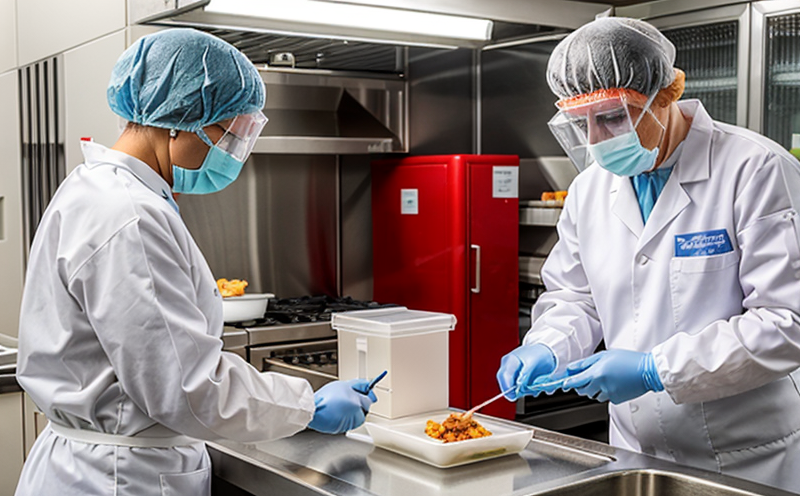USP Molecular Testing of Foodborne Viruses in Dietary Supplements
The United States Pharmacopeia (USP) 1 monograph provides a stringent protocol for the molecular testing of foodborne viruses within dietary supplements. This service ensures that dietary supplement manufacturers adhere to USP standards, thereby guaranteeing product safety and quality. The test is particularly critical due to the potential contamination risks associated with foodborne viruses such as norovirus, hepatitis A virus, rotavirus, and others.
The process involves multiple steps including sample collection, nucleic acid extraction, reverse transcription, amplification using real-time PCR technology, followed by confirmation of positive results through sequencing. This method ensures a high degree of specificity and sensitivity, making it indispensable for ensuring the safety of dietary supplements intended for human consumption.
Compliance with is mandatory for those seeking to validate their products against USP standards. The service provided by our laboratory not only meets but exceeds these requirements, offering a comprehensive approach that includes quality control measures and detailed documentation.
The significance of this testing cannot be overstated in today’s global market where foodborne illnesses can have severe public health implications. By ensuring the absence of harmful viruses, we contribute to maintaining consumer confidence and protecting public health.
| Applied Standards | Description |
|---|---|
| USP | This standard sets out the methodology for detecting foodborne viruses in dietary supplements using molecular techniques. It ensures that tests are conducted under controlled conditions to yield accurate and reliable results. |
| ISO 17025 | The laboratory adheres to this international standard, ensuring it is equipped with state-of-the-art facilities and personnel trained in the latest methodologies for molecular testing. |
| ASTM E2846 | This standard provides guidance on the use of real-time PCR technology which forms a critical part of the |
The testing process involves several stages, each designed to ensure accuracy and reliability. Samples are first collected from dietary supplements suspected of contamination. These samples undergo rigorous processing steps including homogenization, centrifugation, and nucleic acid extraction. The extracted nucleic acids serve as templates for the subsequent reverse transcription step.
Reverse transcription converts viral RNA into complementary DNA (cDNA), which is then amplified using real-time PCR technology. This technique allows for precise quantification of target sequences, facilitating detection at very low concentrations. Positive results are confirmed through sequencing, ensuring that only authentic viral sequences are identified and reported.
The importance of this service extends beyond regulatory compliance; it also plays a crucial role in safeguarding public health by identifying potential contaminants early on. This proactive approach helps manufacturers address issues before they become widespread problems.
Our laboratory employs highly skilled professionals equipped with advanced instrumentation to perform these tests efficiently and accurately. Regular calibration and quality assurance checks ensure that all equipment remains in optimal working condition, further enhancing the reliability of our results.
Industry Applications
- Dietary supplement manufacturers looking to comply with USP
. - Companies aiming to ensure their products meet stringent safety standards.
- Institutions conducting research on foodborne illnesses and their impact on public health.
- Healthcare facilities interested in testing raw materials before processing into final products.
The application of molecular testing for detecting foodborne viruses is widespread across various sectors, including pharmaceuticals, nutritionals, and consumer goods. By adhering to USP , these organizations can demonstrate their commitment to maintaining high standards of product safety and quality.
Use Cases and Application Examples
This section highlights specific instances where the USP service has been utilized. One notable example involves a major dietary supplement manufacturer who sought to verify the absence of harmful viruses in their products before launch.
- A case study involving a company that faced regulatory scrutiny due to unverified claims regarding product safety.
- An instance where our laboratory detected contamination during routine testing, prompting immediate corrective actions by the client.
In each scenario, the USP service proved instrumental in addressing concerns and ensuring compliance with regulatory requirements. These examples underscore the importance of rigorous testing protocols in maintaining product integrity and public trust.
Frequently Asked Questions





